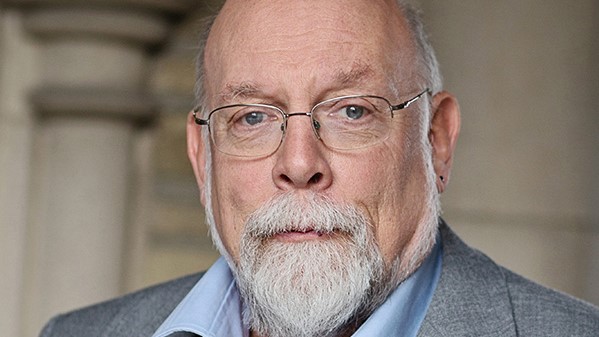It is possible that no one was more influential in shaping the universe of online access to legal information than Tom Bruce. Way back in 1992 — a year before the launch of the World Wide Web and when only scraps of legal information could be found on the Internet — Tom and colleague Peter Martin founded the Legal Information Institute at Cornell Law School, with the goal of making the law available to everyone online, for free.
So ahead of his time was Tom that, when the LII first began to publish legal materials on the web, Tom had to create a web browser, Cello, because there was no browser then that worked with Windows, even though that was the operating system used by most legal professionals.
Today, Tom announced that he will retire June 30. Taking over to lead the LII are Sara Frug, who will direct the LII’s technical efforts, and Craig Newton, who will be in charge of the editorial and outreach facets of the organization.
To this old-timer (meaning me), this news truly marks the end of an era — or perhaps a major turning point. Given the world of legal information as it now exists, it is hard to describe how revolutionary was the LII in its early days. It published Supreme Court opinions 10 years before the court had a website. It published the first online version of the U.S. Code. It offered the first distance-learning courses for the graduate study of law.
“I’m proud of what the LII has done,” Tom said in a statement announcing his retirement. “We’ve helped a lot of people to find and understand the law — over the years, hundreds of millions. That is the most important thing to the world, I think.”
But as important as that was, Tom said he considers it even more important that the LII was able to break the commercial publishers’ intellectual monopoly on legal information.
“When Peter Martin and I came on the scene, legal-information publishing was whatever WEXIS said it was. Legal publishers were deeply concerned with breadth, and hardly at all with improved presentation or integrated information architecture. They could not have cared less about the needs of non-lawyers. It was all a mile wide and an inch deep. The time was ripe for change, and we were the first to use the Web to try our hands at it.”
The LII’s impact has been global. Among other things, it has inspired the development of a global network of legal information institutes, all devoted to providing free access to the law online.
Tom’s training was neither in law nor technology. A graduate of the Yale School of Drama, he started his career as a stage and production manager for the likes of the American Repertory Theater, the Lyric Opera of Chicago, and other notable theater companies. After working at Cornell Law School as director of educational technologies, he became co-director of the LII at its founding in 1992 and director in 2004.
The world of legal information online as we know it today traces its roots back directly to Tom Bruce. For more than a quarter century, he has been a crusader for free and open access to the law. Everyone who is touched by or affected by the law — which is pretty much everyone — owes Tom a debt of gratitude for making the law more accessible.
By the way: Two years ago, on the occasion of the LII’s 25th anniversary, I recorded an interview with Tom for the Law Technology Now podcast. Click below to hear that interview.
 Robert Ambrogi Blog
Robert Ambrogi Blog